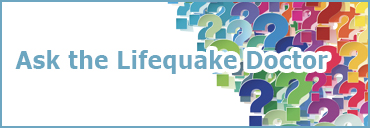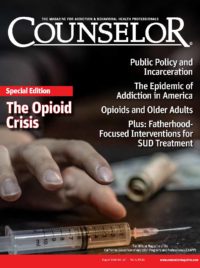Share
Dear Dr. Toni,

I know dating apps are the primary way people meet these days if they’re over forty and don’t want to go to bars, but is it possible to become addicted to Internet dating? I’m a fifty-two-year-old woman who’s been single for three years and is self-employed. I don’t meet men at social events or the grocery store and I don’t go to bars. Recently I’ve been spending a lot of time on this Internet dating site because there are men constantly reaching out to me and I’m becoming addicted to the attention. It’s such a contrast from being out in the world where I feel invisible to them while they ogle young women in stores or at the park.
I feel that it’s in getting in the way of my doing marketing for my business and I haven’t met anyone nearby that I want to continue dating, yet I continue to stay on this site and open e-mails from people I’ll never be interested in dating.
What should I do, Dr. Toni? Am I addicted?
– “Dating App Porn” Addict
Dear Reader,
I hear your frustration and confusion. Just like food is something we need and people can become addicted (unlike substance abuse addiction), being plugged into the dating app world can become addictive for the same reason sugar is: it hits neurotransmitters in the brain that stimulate dopamine.
This is pulled from a longer article by Mia Levitin in the New Statesman (2018):
Dating apps have been shown to be pathologically addictive: according to Tinder—by far the market leader—the average user logs in eleven times per day, spending about seventy-seven minutes daily in pursuit of the neurochemical cocktail dished out each time there’s a match. The ding lights up the same pleasure centres in the brain activated by eating chocolate, viewing erotic imagery, or snorting cocaine.
Like any interface in our attention economy, there are “a thousand people on the other side of the screen” whose job it is to keep you hooked, says “design ethicist” Tristan Harris, one of a growing band of ex-tech execs reckoning with the Frankensteins of their creation. Every last detail of the user experience is engineered to keep our hands and eyes glued to the smartphone—from the colours and sounds of notifications to the timing of their receipt.
From the research I did, Hooked: How to Build Habit-Forming Products (2014) by gaming entrepreneur Nir Eyal, substantiates that this addiction is real and designed to keep you hooked (Levitin, 2018).
The kind of addiction that Internet dating creates is very much akin to gambling. The actual addiction is to the uncertainty it creates. It is designed to keep you in wanting and over time to get less and less pleasure out of it. You are not alone in this.
The key is to identify what it is replacing that feels missing in your life. Perhaps orient yourself away from looking for someone and go out to meetups, join a church (if you are not religious, there are nondenominational ones like Unity and Church of Religious Science), volunteer for a charity whose efforts you support, or take a class and learn something new. If it feels like an addiction it probably is, and the only answer to recovering from any addiction is cold turkey, but perhaps before you go cold turkey, bring some new social activity into your life so you will not be hit with withdrawal and be back to the isolation and loneliness of working from home all the time. Think of meetups and/or church as your own version of methodone for heroin addicts. Take a risk and get curious about how to truly fulfill yourself, because these game designers are starting to operate like something right out of The Matrix.
Although to my knowledge there are no Twelve Step programs for this pe se, you could go to a Sex and Love Addicts Anonymous (SLAA) meeting as well. There are probably people there who also have the Internet dating/love addiction going on.
References
- Levitin, M. (2018). The one thing dating apps will give you for sure? Addiction. New Statesman. Retrieved from https://www.newstatesman.com/2018/02/one-thing-dating-apps-will-give-you-sure-addiction

Toni Galardi, PhD
Toni Galardi, PhD, is a licensed psychotherapist and transitions expert in Marin County, California. She works with people by phone and Skype all over the world. She is also the author of The LifeQuake Phenomenon: How to Thrive in Times of Personal and Global Upheaval. She can be reached through her email address drtoni@drtonigalardi.com or at her office at 310-890-6832.











 Counselor Magazine is the official publication of the California Association of Addiction Programs and Professionals (CCAPP). Counselor offers online continuing education, article archives, subscription deals, and article submission guidelines. It has been serving the addiction field for more than thirty years.
Counselor Magazine is the official publication of the California Association of Addiction Programs and Professionals (CCAPP). Counselor offers online continuing education, article archives, subscription deals, and article submission guidelines. It has been serving the addiction field for more than thirty years.